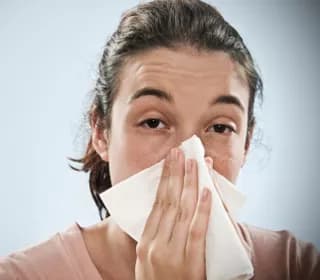
Allergies During Pregnancy Contribute To Changes In The Brains Of Rat Offspring
A new study in rats could begin to explain why allergies during pregnancy are linked to higher risks for attention-deficit hyperactivity disorder and autism in children.
Researchers at The Ohio State University found significant changes in the brain makeup of fetuses and newborn rats exposed to allergens during pregnancy.
Animals that lived to adulthood after allergen exposure before birth showed signs of hyperactivity and antisocial behavior and decreased anxiety, found a research team led by Kathryn Lenz, an Ohio State assistant professor of psychology.
"This is evidence that prenatal exposure to allergens alters brain development and function and that could be an underappreciated factor in the development of neurodevelopmental disorders," said Lenz, who presented her research Nov. 16 in San Diego at Neuroscience 2016, the annual meeting of the Society for Neuroscience.
Though there are established links between allergies and ADHD and autism -- as well as between inflammation and risk of autism, schizophrenia and ADHD -- the cellular-level changes that could contribute to those connections largely remain a mystery.
Autism and ADHD are both three to four times as common in boys than in girls, Lenz said. And so she and her collaborators set out to look for sex differences in the rats as well.
"We're really interested in figuring out unknown factors in psychological disorders and in differences between male and female brain development as it relates to autism, ADHD and other disorders," Lenz said.
To study the effects of allergies on offspring, researchers sensitized female rats to ovalbumin (found in egg whites) before pregnancy. Then, 15 days into their pregnancies, they exposed them to the allergen, prompting an immune response in the animals.
They analyzed whether prenatal allergen exposure changed the number and behavior of immune cells in the developing brain of offspring. They explored possible changes in young rats' physical activity, anxiety-like behavior, ability to learn and sociability. And they examined the density of dendritic spines in the juvenile animals' brains. The spines protrude from neurons and are vital to cellular-level communication in the brain.
Rats exposed to allergens before birth had higher levels of immune cells called mast cells in the brain and lower numbers of immune cells called microglia, regardless of the animals' gender.
Animals with allergic mothers were hyperactive, but had lower levels of anxiety-like behavior. When they interacted with other juvenile rats, the males in the allergen group were less likely to roughhouse with their peers.
"Young rats engage in social play and males are more rough and tumble and usually play much more than females," Lenz said.
"The males born to the allergen-exposed mothers looked more like females. They were more socially reserved. They were really hyperactive, but socially disengaged. That looks a bit like ADHD."
And when the researchers looked at the animals' ability to be mentally flexible, the rats born to allergic mothers had a tougher time, Lenz said.
"They have to use rules to find a reward -- a Cheerio in a terracotta pot -- and the rules we give them keep shifting," Lenz said, explaining that in one test the treat might be in a pot covered in sandpaper and in another test it might be in a pot covered in velvet.
The rats in the allergen group weren't as capable of adapting to the changing parameters of the test, and the males had deficits that were more significant than the females.
Early data from the study shows that the dendritic spines -- the points of synaptic connection between cells in the frontal cortex of the animals' brains -- were decreased in males with allergy exposure and increased in their female counterparts.
Materials provided by Ohio State University. Original written by Misti Crane. Note: Content may be edited for style and length.
Disclaimer: DoveMed is not responsible for the adapted accuracy of news releases posted to DoveMed by contributing universities and institutions.
Related Articles
Test Your Knowledge
Asked by users
Related Centers
Related Specialties
Related Physicians
Related Procedures
Related Resources
Join DoveHubs
and connect with fellow professionals

0 Comments
Please log in to post a comment.